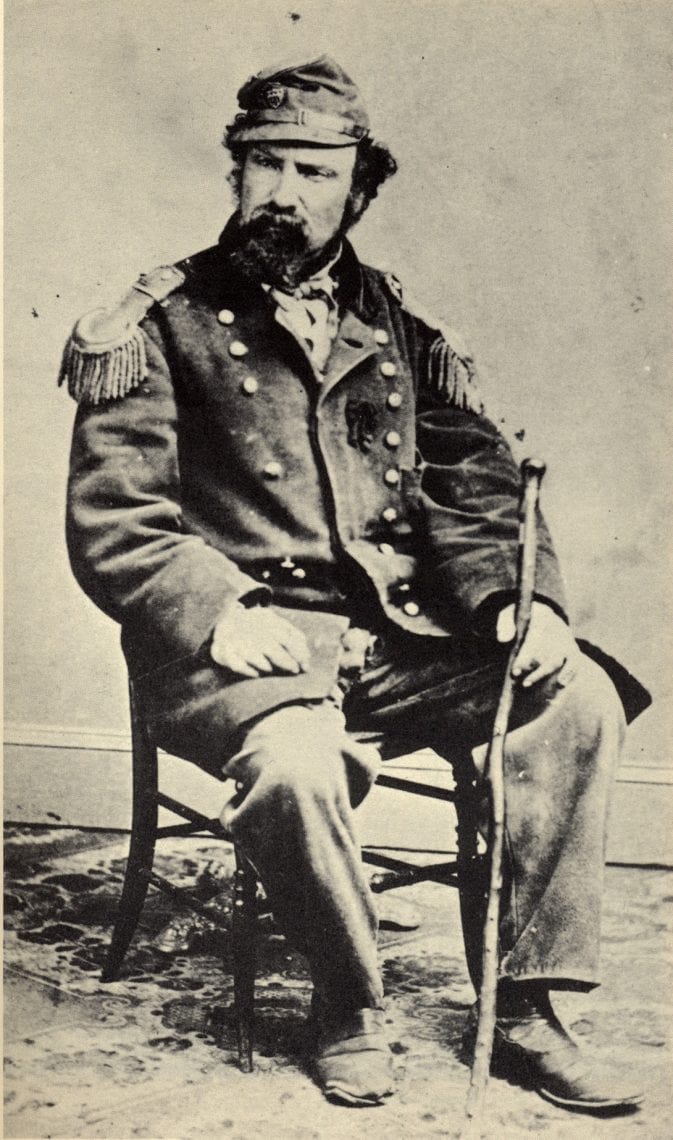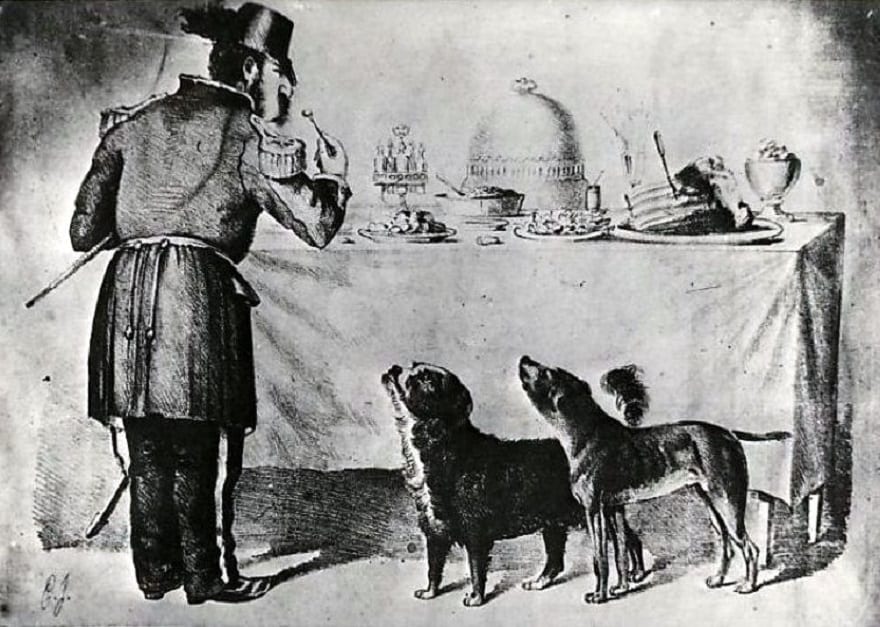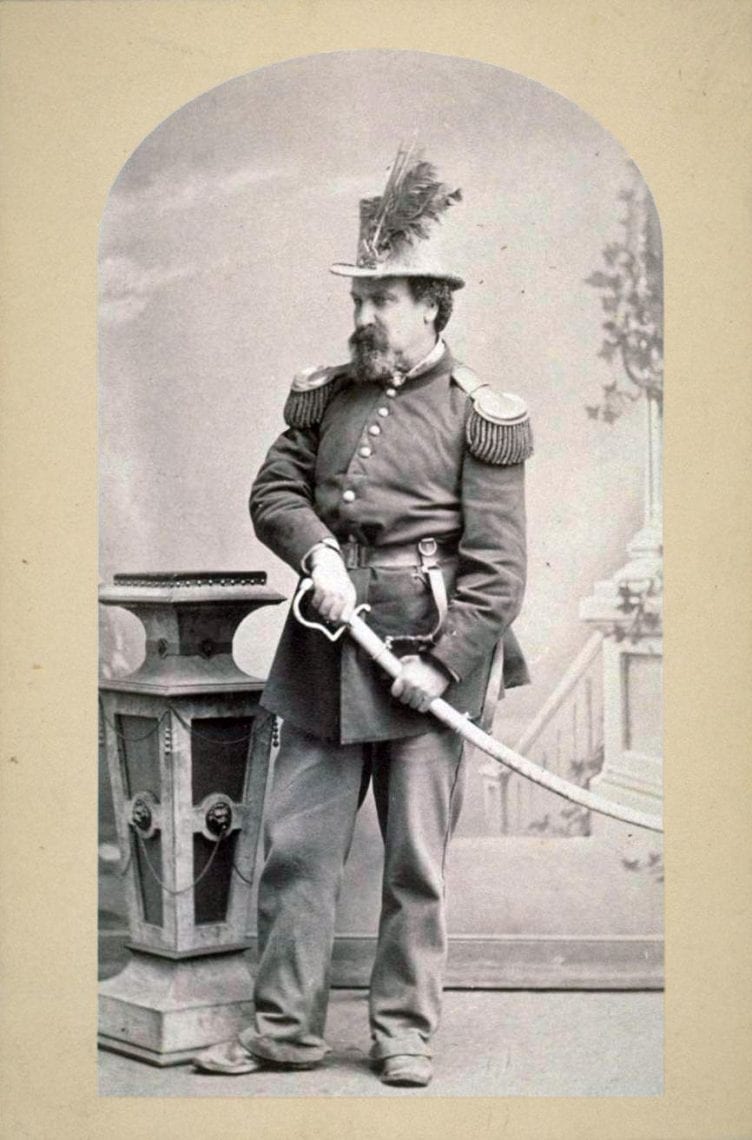It was a cold winter day in January 1880. Escorted, as always, by his dogs Bummer and Lazarus, Joshua Norton was having his daily walk in the streets of San Francisco, wearing his military suite decorated with medals, a large sword on his belt, and a peacock feathers hat on his head. Upon reaching the corner of Dupont and California, after saluting back a few fans who greeted him – he dropped dead right there on the sidewalk.
California, the golden state, was grief stricken. “The king is dead!” the headline of the San Francisco Chronicle declared, while the competing San Francisco Bulletin dedicated a 34 inch report on the life of Norton. “The Emperor is gone”, mourned one renowned journalist, “and he shall be missed more than any other San Francisco deceased character ever”. 10,000 people, residents of “Norton’s Monarchy”, marched in his huge funeral, escorting the last emperor of America on his final journey.

How did a man so remote from sanity managed to capture so many hearts? The answer is: this is California, whose history is full of fantasy and imagination. We should start the story of Norton at that fantastic turning point in American history when John Marshall, a simple worker in Sutter farm in San Francisco, discovered a shiny piece of metal while building a watermill in the American River.
Marshall’s seemingly prosaic discovery of 1849 was impetus for the golden rush age, therefore commemorated as a crucial date in history, for example in the name of the San Francisco football team the 49ers. The rush attracted hundreds of thousands of dreamers who turned the barren area of California into a vibrant flourishing land. The new settlers included a few Jews, such as a clothing manufacturer called Levi Strauss, who sold the gold diggers pants from strong fabric called jeans, after learning that they were wearing materials too weak for their hard labor; and our protagonist, Joshua Norton, born to a Jewish family, in England, who spent his early life in South Africa. Dazed by the news from across the sea, Norton packed up and sailed to America, after the death of both his parents within two years.

Straying from the conventional cliché of immigrants who came to America penniless and then became millionaires, Joshua Norton actually arrived at California in 1849 with a considerable amount, some 40,000 Dollars which he inherited from his deceased parents, John and Sarah. Upon arriving at San Francisco he invested in real estate, cigars and retailing. He did very well at first but went out of business shortly after, taking one risk too many and investing his entire capital in a huge amount of rice. As he was not the only one, rice prices went down and Norton became bankrupt and remained as poor as a beggar.
The traumatic bankruptcy, the loss of his parents and two brothers, and having no children or family of his own – was too much to handle for the Jewish immigrant, who wasn’t all mentally balanced to begin with. Norton, to put it bluntly, freaked out – but in the most elegant manner. On September 17, 1859, he published the following notice in the San Francisco Bulletin: “At the peremptory request of a large majority of the citizens of these United States, I, Joshua Norton, formerly of Algoa Bay, Cape of Good Hope, and now for the last nine years and ten months past of San Francisco, California, declare and proclaim myself Emperor of these United States, and Protector of Mexico.” Applaud Emperor Norton I!
His undisputed term as emperor of the United States lasted for 21 years, and he was greatly stern about it, wholeheartedly believing he was in fact emperor. Every few months he used to issue court decrees in the local press that was more than willing to cooperate. He released a decree for the dispersion of the Congress , for the abolishing schools segregation, as well as one ordering the army to take Washington D.C, to name just a few. He who shall break these laws, was “under the emperor’s open eye”. During the civil war, Norton recommended himself as mediator between the south and north, and to his great amazement was turned down. When Pedro II Emperor of Brazil visited Berkeley University in California, Norton greeted him and demanded a four eyes imperial meeting. The amused Pedro humored him and they had a sincere, cordial talk for thirty minutes.
From internal affairs Norton proceeded to monetary issues of the States, printed banknotes with his portrait, and even collected taxed. The amazing thing was that the residents of San Francisco loved him dearly, and were willing to pay. When he toured the streets, in a fancy military jacket, with a shiny sword and peacock feathers hat, they used to salute him. He entered freely all the theaters and luxurious restaurants of San Francisco. Norton’s story made it into literature by great American novelists such as Mark Twain, Robert Louis Stevenson and Bret Harte, who were fascinated by his colorful, eccentric character.

“In what other city would a harmless madman who supposed himself emperor of the two Americas have been so fostered and encouraged? Where else would even the people of the streets have respected the poor soul’s illusion? Where else would bankers and merchants have received his visits, cashed his cheques, and submitted to his small assessments? Where else would he have been suffered to attend and address the exhibition days of schools and colleges? Where else, in God’s green earth, have taken his pick of restaurants, ransacked the bill of fare, and departed scatheless?” Stevenson would write in 1892.
Surely the author of “The Strange Case of Dr. Jekyll and Mr. Hyde” knew a thing or two about madness. Indeed only in the United States of America could such a bizarre story take place. A story of such a heart rending man, who lost touch with reality, and received sympathy and collaboration with his madness. No reference to any American president in office intended. Enjoy election day, America!
(Translated from Hebrew by Danna Paz Prins)